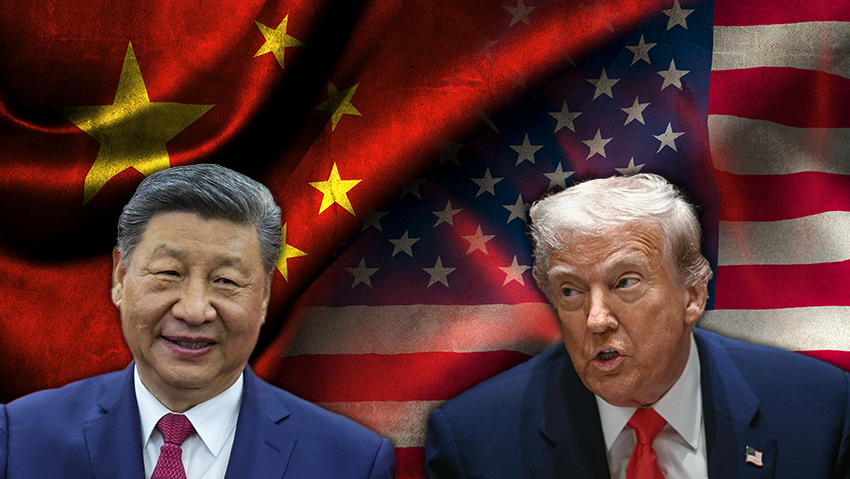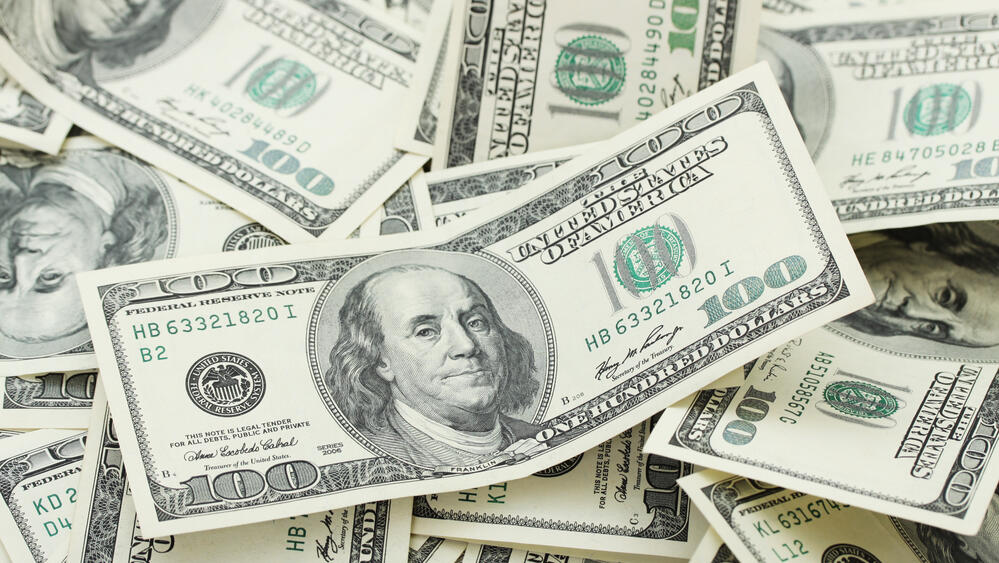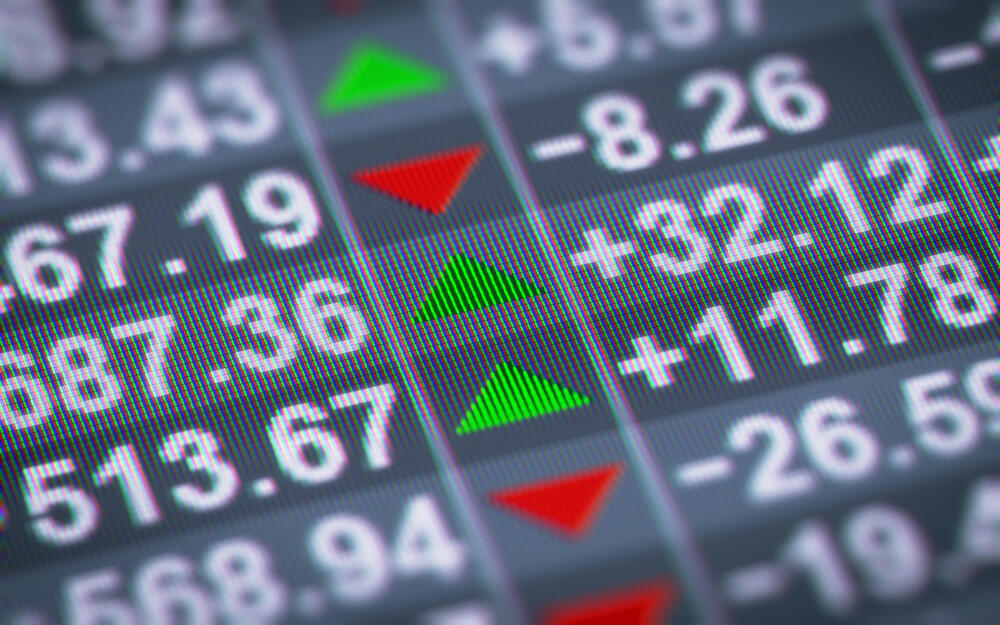Stocks and the dollar surged on Monday after the United States and China said they had agreed on a 90-day pause on tariffs and reciprocal duties would drop sharply, giving investors some confidence that a full-scale trade war may have been averted.
U.S. Treasury Secretary Scott Bessent, speaking after talks with Chinese officials in Geneva, told reporters the two sides had reached the deal that was outlined in a joint statement and that reciprocal rates would drop by 115 percentage points.
3 View gallery


Chinese President Xi Jingping, U.S. President Donald Trump
(Photo: shutterstock' AFP / JOHN HAMILTON / US DEPARTMENT OF DEFENSE, AP PhotoAlex Brandon8)
This weekend's meetings were the first face-to-face interactions between U.S. and Chinese officials since U.S. President Donald Trump returned to power and launched a global tariff blitz, imposing particularly hefty duties on China.
Market reaction
STOCKS: Futures on the S&P 500 and Nasdaq jumped to trade up 2.8% and 3.5%, respectively, from gains of 1.5-2% previously, while in Europe, the STOXX 600 (.STOXX), opens new tab rose 0.7% in early trading.
FOREX: The dollar extended gains, with the euro down 1.2% at $1.1164, having traded down 0.2% on the day earlier, while the yen weakened, leaving the U.S. currency up 1.6% at 147.715, from a 0.5% gain earlier.
BONDS: Benchmark 10-year U.S. Treasury yields rose 7 basis points on the day to 4.44%, having traded up 5 bps before the joint statement.
Here's what the experts say:
Jan von Gerich, chief market analyst, Nordea, Helsinki:
"Markets have taken it at face value, I personally am a bit skeptical. If you want to end up with low tariffs, then why do it like this? It’s still bouncy, and uncertainty is elevated.
"I’m still worried that there will be a last word, that now they’ve come to an initial conclusion the details won’t satisfy both sides, and there will be something else. But, of course, time will tell. I would not take everything we hear at the moment at face value—that’s what we saw on ‘Liberation Day’ (April 2 tariff announcement), and now, and it still bounces both ways."
Jane Foley, head of FX strategy, Rabobank, London:
"The market reacted already overnight in anticipation of this, and we’ve got a bit more details now, and it's continuing the tone it set overnight, where it’s buying back the dollar. We have this scenario where the dollar is now being treated as a risky asset and is making gains.
Get the Ynetnews app on your smartphone: Google Play: https://bit.ly/4eJ37pE | Apple App Store: https://bit.ly/3ZL7iNv
"We’ve had reassurance from the U.S. that negotiations will continue and that the tone of the negotiations has been positive and U.S. and China don’t want to decouple, so there is a lot more optimism that the tariffs won’t have the devastating impact that perhaps they could have done, and there is a collective sigh of relief in markets.
"That doesn’t mean that we’re back to where we were before the Trump inauguration. The 10% baseline tariff still exists everywhere, the 90-day pause is there and the clock is starting to tick. The overall scenario is not as bad as it could have been, but we still have a fair amount of uncertainty about where these tariffs will settle, their impact on world growth and central bank policy."
Kenneth Broux, senior strategist FX and rates, Société Générale, London:
"There is a de-escalation between China and the U.S. resulting in a reduction of tariffs on Chinese goods to 30% and Chinese tariffs on U.S. goods to 10%. It's a clear vote by the market in favor of riskier assets. It's a step in the right direction and a positive for U.S. assets and the U.S. economy.
"The dollar was lagging other markets in the recovery from the April lows. We had equities up back to April 2 levels, we had bond yields up to those levels and the dollar was actually lagging that move. Now the conditions are falling into place for a deeper adjustment and a bigger recovery of the dollar to catch up with equities and bond yields."
Zhiwei Zhang, chief economist, Pinpoint Asset Management, Hong Kong:
"This is better than I expected. I thought tariffs would be cut to somewhere around 50% and this is much lower. Obviously, this is very positive news for economies in both countries and for the global economy, and makes investors much less concerned about the damage to global supply chains in the short term.
"But we also need to keep in mind this is only a three-month temporary reduction of tariffs. So this is the beginning of a long process. The two sides will spend months, probably, to come up with a resolution or reach a final trade deal, but this is a very good starting point."
Arne Petimezas, director of research, AFS Group, Amsterdam:
"Such a sharp U-turn by the U.S. on tariffs on a Monday morning is quite the surprise. It seems that tariffs on China will fall to manageable levels, albeit temporarily. Markets should rally on this. How can Trump credibly raise tariffs when the 90-day pause ends? He has toned down his tariffs faster than anyone thought he could, and April 2 will soon be forgotten. Granted, he told you to buy the dip."
William Xin, chairman of hedge fund Spring Mountain Pu Jiang Investment Management, Shanghai:
"The result far exceeds market expectations. Previously, the hope was just that the two sides could sit down to talk, and the market had been very fragile. Now, there's more certainty. Both China stocks and the yuan will be in an upswing for a while."



